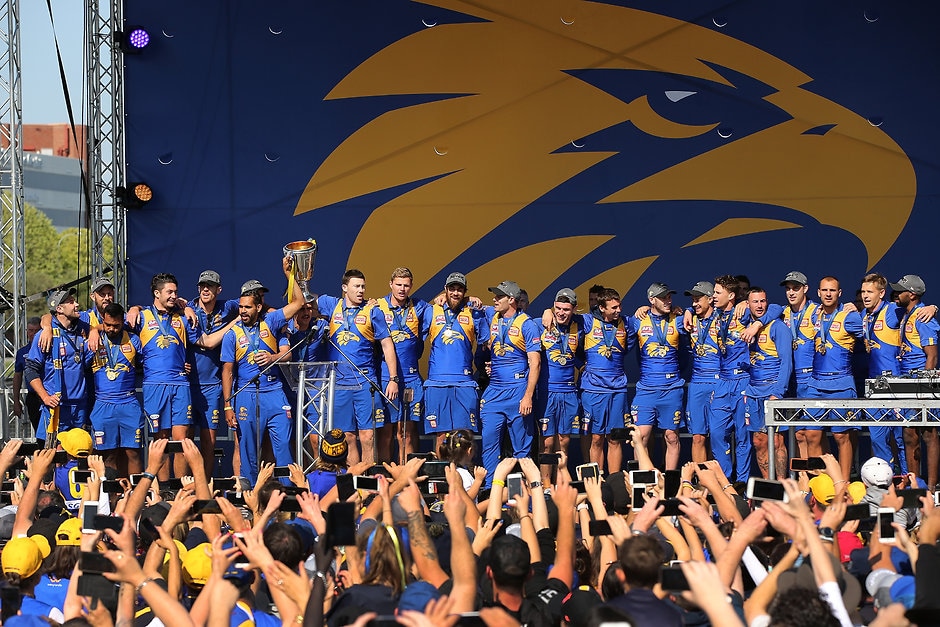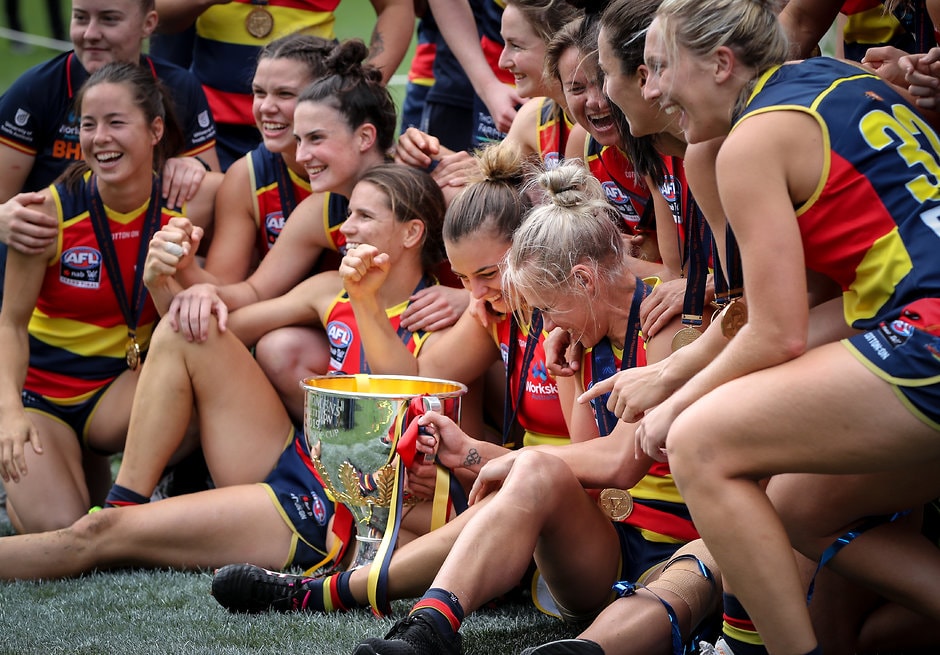AFL CLUB memberships have hit an all-time record of 1,057,572 members.
For the second time in AFL history and in back-to-back seasons, total club membership have exceeded one million members.
The AFL says it is the nineteenth consecutive year of growth.

Eleven of the 18 AFL clubs broke their all-time records, which include Carlton, Collingwood, Essendon, Geelong, Gold Coast, Greater Western Sydney, Hawthorn, Melbourne, Sydney, West Coast, and Richmond.
West Coast, on the back of the 2018 premiership, achieved the League's biggest growth, adding 10,155 members (90,445 total), and become the second club in AFL history to push through 90,000 members.
Richmond (103,358) once again exceeded 100,000 members, the only club in history to do so, with West Coast (90,445), (Collingwood (85,226), Essendon (84,237) and Hawthorn (81,211) rounding out the top five.
West Coast fans celebrate the Grand Final win with the team. Picture: AFL Photos
NSW and Queensland experienced year on year growth, with Sydney (61,912), GWS (30,109) and Gold Coast (13,649) all breaking their membership records.
Brisbane (28,023) delivered the highest membership total since 2005.
AFL chief Gillon McLachlan said in a statement: "Footy is about connection and a sense of belonging. The commitment members make to their clubs is the key reason why our game continues to grow.
"The national reach of Australian football has never been greater.
"On behalf of the AFL, thank you to every single person who signed up this year." Mr McLachlan said.
AFLW membership increased again after its second season, with 14,006 members (up 48.9 per cent) signing up.
The official AFL club membership tally was compiled after the July 31 deadline, rising by 4.87 per cent per cent on 2018 figures, with positive growth achieved by 14 of the 18 clubs.
A huge crowd watched Adelaide's AFLW team win the 2019 Grand Final. Picture: AFL Photos
AFL club membership has increased for the 28th time in the past 29 years, with the exception of the year 2000, when the AFL season was moved forward by a month to accommodate the Sydney Olympics.



